Israel is a hot, dry country with sparse vegetation. However, due to the high temperatures and lack of natural light, greenhouses were developed in Israel in the 1960s. Today, greenhouse farming is one of Israel’s most important agricultural sectors. This type of farming uses artificial light to help plants grow faster and produce more crops without the need for pesticides or other harsh chemicals.
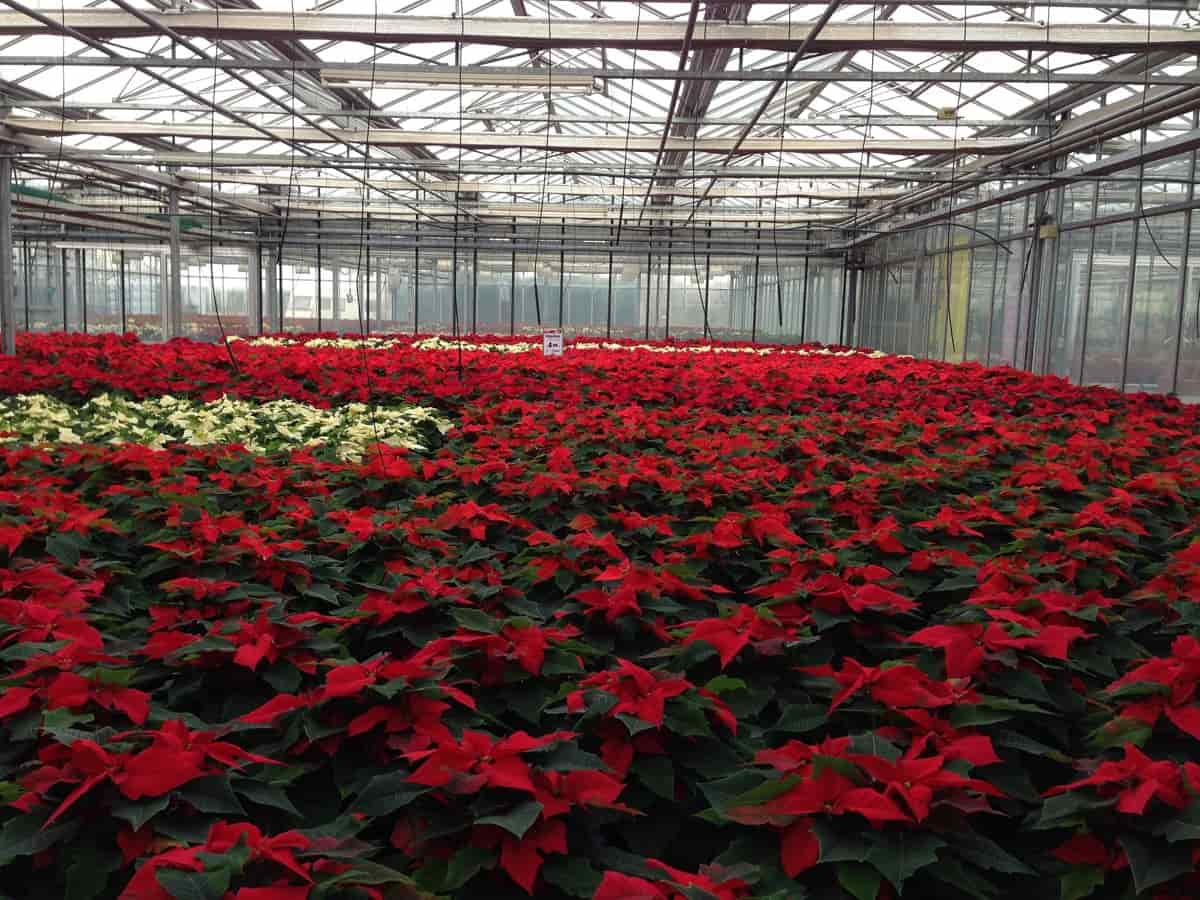
How to start greenhouse farming in Israel
Types of greenhouses in Israel
In general, the most common type of greenhouse is the tunnel system. Tunnel systems are cheap to build and maintain, producing high yields because they keep the plants close to the light. However, tunnel systems have one big disadvantage: they can only be used for a few crops because the plants waste so much energy trying to reach the light. Another common type of greenhouse grows the hoop house.
Hoop houses are less expensive to build than tunnel systems, but they produce lower yields because the plants have to fight against strong winds. Another popular type of greenhouse grows the A-frame system. A-frame systems are more expensive to build than hoop houses, but they produce higher yields because they allow Plants more space to grow.
Limitations of greenhouse farming in Israel
- Greenhouse farming has been booming in Israel recently, with many farmers adopting the practice to increase yield and decrease reliance on imports. However, some limitations to greenhouse farming in Israel must be considered.
- One limitation is that Israeli climates are not ideal for greenhouse cultivation. The average annual temperature is around 18 degrees Celsius, which is too cold for most plants. Additionally, the country experiences very high variability in weather conditions, which can damage crops if they are not well-adapted to the climate.
- Another limitation is the availability of water. Greenhouse farms require a lot of water to function properly, and if supplies are scarce or polluted, it cannot be easy to operate a farm sustainably.
- Despite these limitations, greenhouse farming is still a popular option in Israel because it allows farmers to produce food outside the traditional seasonality constraints and emits less pollution than traditional agriculture.
In case you missed it: Greenhouse Farming in Canada: How to Start, Cost, Crops, and Requirements
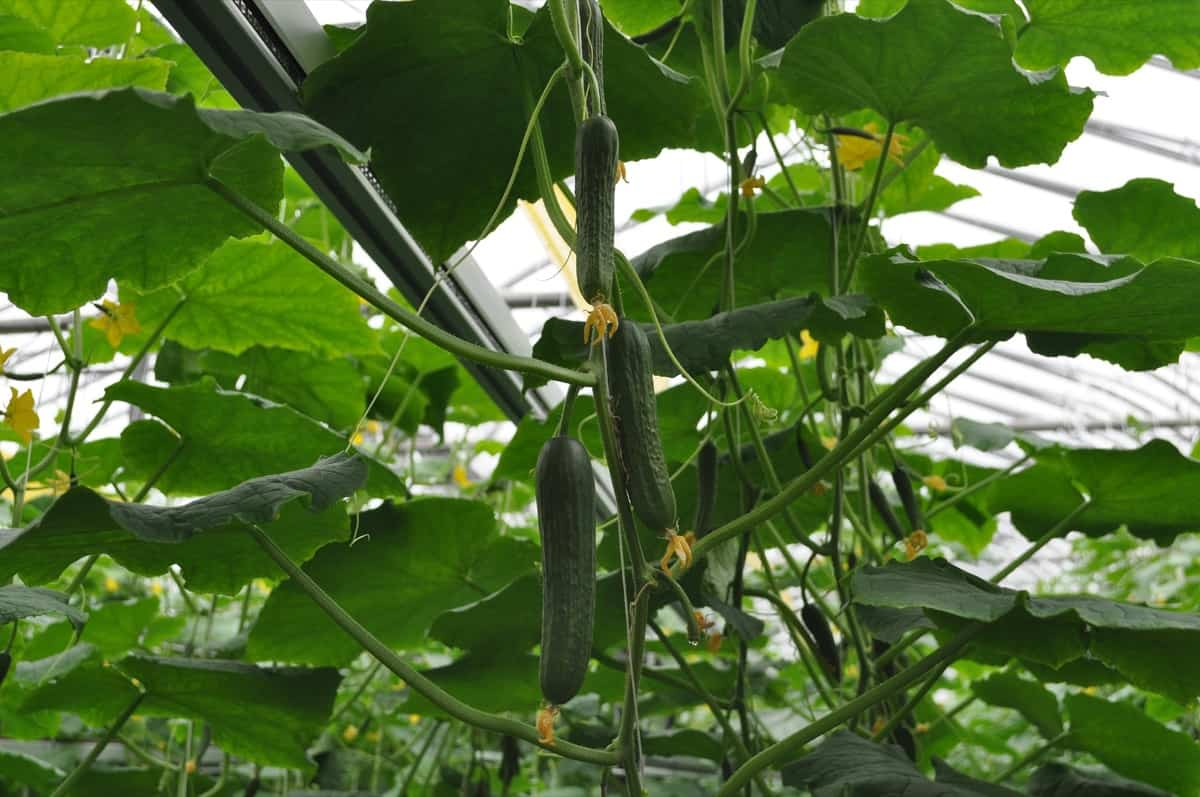
Greenhouse vegetable production in Israel
Israel has become a major player in the greenhouse vegetable production industry. The country is blessed with a temperate climate that allows for the year-round cultivation of many greenhouse vegetables, including tomatoes, cucumbers, peppers, eggplants, and melons. In addition, Israel’s fertile soil and ample water supply make it possible to grow many crops indoors without pesticides or herbicides.
Israeli greenhouse farmers are among the most experienced in the world. They have honed their skills for years, developing unique growing methods to produce market-quality vegetables under controlled conditions. As a result, Israeli greenhouse vegetables are high in quality and affordable, making them an attractive option for consumers worldwide.
Israeli greenhouse farmers face a few challenges when cultivating vegetables indoors. The country’s well-developed infrastructure makes transporting crops and workers between farms and greenhouses easy. Greenhouse farming is also relatively energy-efficient, requiring far less power than traditional agriculture practices.
Is greenhouse farming profitable in Israel?
According to a study conducted by the Israel Agricultural Research Organization (IARO), greenhouse farming is more profitable than traditional farming in Israel. The study found that the average yield from greenhouse farming is three times higher than from traditional farming methods and that greenhouse farming is also more efficient regarding water usage. Additionally, greenhouse farmers can avoid many pests and diseases common in traditional agriculture, making the process more sustainable.
Israeli greenhouse farmers have been taking advantage of these advantages for some time now, and the sector is growing rapidly. Israel is one of the countries that have long been active in greenhouse farming. The country’s climate and Mediterranean landscape are perfect for growing plants in greenhouses, which makes it a prime location for this type of agriculture. Greenhouse farming is a type of agriculture in which crops are grown in a climate-controlled environment.
In case you missed it: How to Start Greenhouse Farming in Nigeria: Business Plan, Cost, Profit, Subsidy, and Challenges
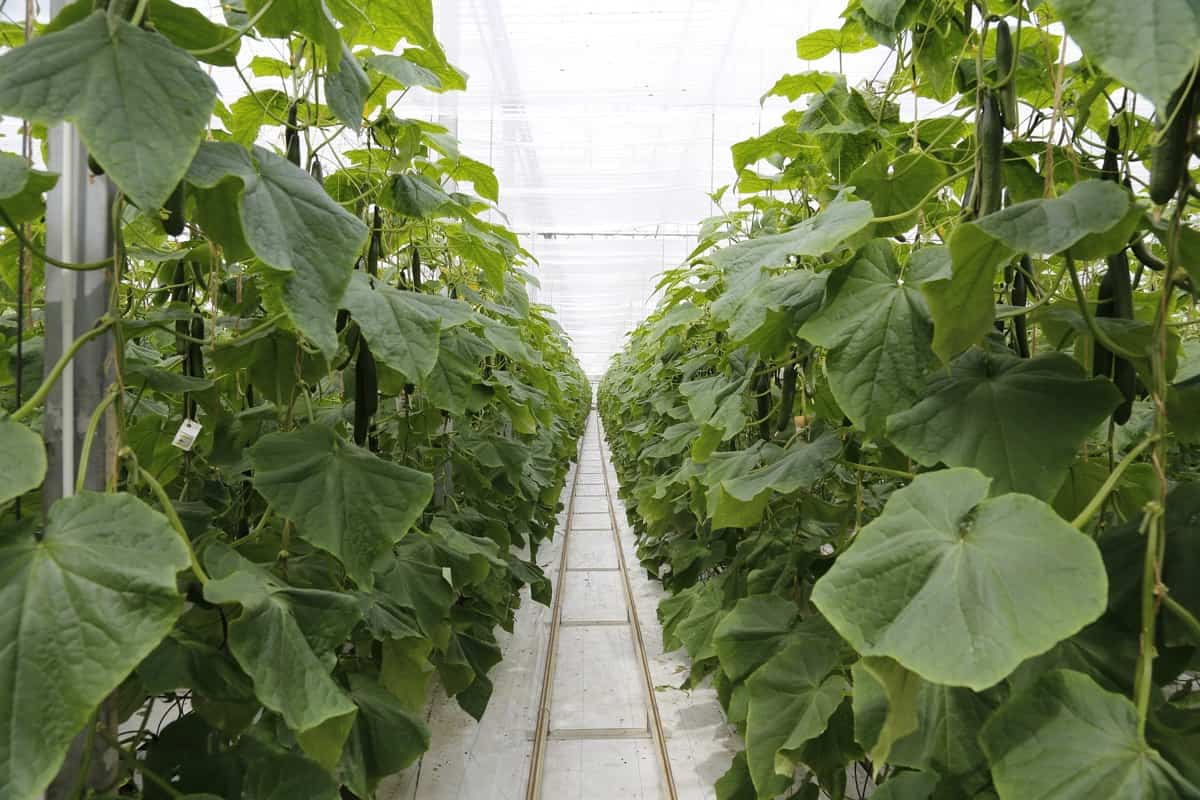
Greenhouse farming systems in Israel
- Intensive greenhouses are the most prevalent type of greenhouse in Israel. These farms use various techniques to optimize production, including reflective roofs, high-intensity lighting, and ventilation systems that circulate air at high speeds.
- Open-air greenhouses are similar to intensive greenhouses but are designed for smaller-scale production.
- Containerized greenhouses use a modular design and are often used for experimental or niche crops.
Top states for greenhouse farming in Israel
Israel is a prime greenhouse-farming location because of its temperate climate and ample sunshine. As a result, greenhouse farming in Israel is becoming increasingly popular, as it allows farmers to produce crops year-round without the need for cold storage. In addition to agriculture, greenhouse farming is also used to produce flowers, fruits, and vegetables.
The main advantage of greenhouse farming over traditional agriculture is that it allows for year-round production, which helps reduce food waste and supports local economies. The top three regions in Israel where greenhouse farming is most prevalent are the North region, including Haifa and Tel Aviv; the Central region, which includes Jerusalem and Tel Aviv-Yafo; and the South region, which includes Eilat and Afula.
What to grow in a greenhouse in Israel?
Israeli greenhouse farmers produce a wide variety of crops, including peppers, tomatoes, cucumbers, strawberries, apples, pears, lettuce, herbs such as rosemary and thyme, beef cattle feed supplements (BCS), sunflowers for oil production (for biodiesel), watermelon seedlings for export to other countries in Europe (e.g., Spain), grapefruit trees are grown specifically for Israeli markets.
Israeli greenhouse growers have developed some of the most advanced technologies in the world when it comes to growing crops under controlled environmental conditions. These technologies include LED lighting, soil moisture sensors, and climate control systems. This allows Israeli growers to produce higher-quality products at lower costs than traditional farmers in other parts of the world.
In case you missed it: How to Start Greenhouse Farming in Brazil: Steps, Cost, Crops, Benefits, and Challenges
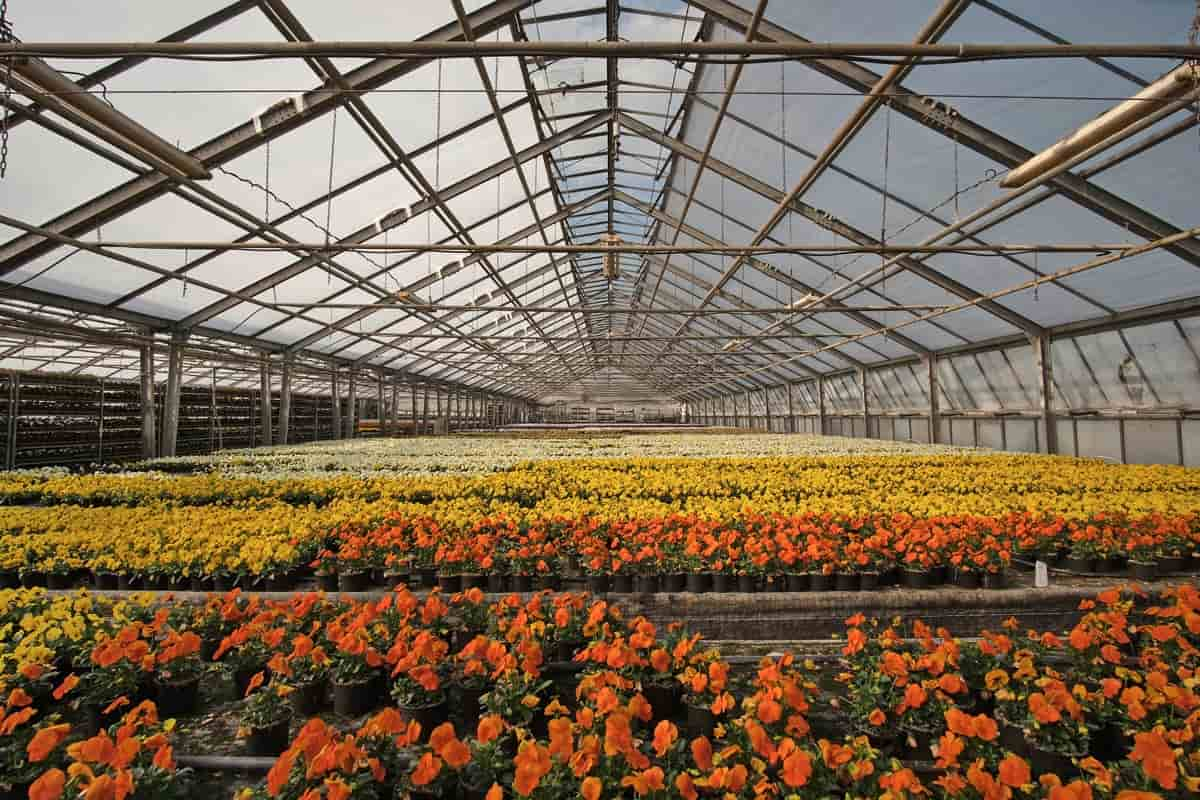
Greenhouses account for a large percentage of the agricultural production in Israel. Crops grown under greenhouses in Israel include tomatoes, cucumbers, peppers, eggplant, zucchini, and watermelons. Greenhouse farming is particularly advantageous in Israel due to the country’s Mediterranean climate and high daytime temperatures.
Israel is a leading producer of fruits and vegetables globally, and greenhouse farming is an important part of the country’s agricultural landscape. Thanks to its sunny climate and efficient greenhouse production facilities, Israel is well-positioned to continue growing this important sector of its economy into the future.
Greenhouse farming business plan in Israel
- Firstly, you will need to identify the areas where greenhouse farming is most beneficial. In general, warmer temperatures and more sunlight are optimal for growing plants in greenhouses, so choose an area with mild climates and plenty of sunshine.
- Before starting your greenhouse farm, you need to understand some basics about greenhouse farming. Greenhouse farms use artificial light and air conditioning to control the humidity and temperature. This helps plants grow faster and more efficiently.
- Israel is well-suited to greenhouse farming because of its temperate climate and abundant sunlight. The country has a wide range of climatic zones so farmers can grow crops year-round. Moreover, thanks to its plentiful rainfall and mountain ranges, Israel has ample water supplies.
- Before you begin any construction or operations on your greenhouse farm, you will need to get all the appropriate permits from local authorities. Make sure to contact your regional agricultural officer (RAO) as soon as you decide to start greening up your property. To start a greenhouse farming business in Israel, you will need a permit from the Israeli Agriculture Ministry. You will also need to purchase land or lease space from an agricultural cooperative.
- If building your greenhouses isn’t an option due to budget or space constraints, many companies offer reasonably priced custom-made greenhouses. Contact local businesses to find out more information about their services.
- Once you have all of the necessary permits in hand, it’s time to get started planting. Start by choosing which types of plants will be most suitable for growing in a greenhouse environment.
- You will also need to purchase or lease land to build your greenhouse. Ensure the property has access to water and electricity and adequate ventilation and space for growing plants. Once you have identified your location and purchased or leased the land, it is time to start construction.
- Make sure you have a solid marketing strategy before starting your greenhouse farming business. Be sure to invest in quality equipment and supplies so your plants can thrive indoors. Keep track of your expenses to decide how best to run your greenhouse farm. Once you have the necessary permits and resources, you can begin setting up your greenhouse.
Greenhouse crop production in Israel
To create a successful greenhouse operation in Israel, you must follow some basic guidelines. Firstly, make sure that your greenhouse is well-ventilated and climate-controlled. Second, keep your plants watered and fertilized; overfertilization can lead to plant diseases. Third, rotate your crops regularly to ensure even growth and optimum yields. Finally, remember to enjoy the fruits of your labor. Greenhouse farming is ideal for crops that require high temperatures or humidity levels, such as tomatoes, cucumbers, and flowers.
In case you missed it: A Guide to Understand Livestock Feeding: Check How this Guide Helps Livestock Farmers
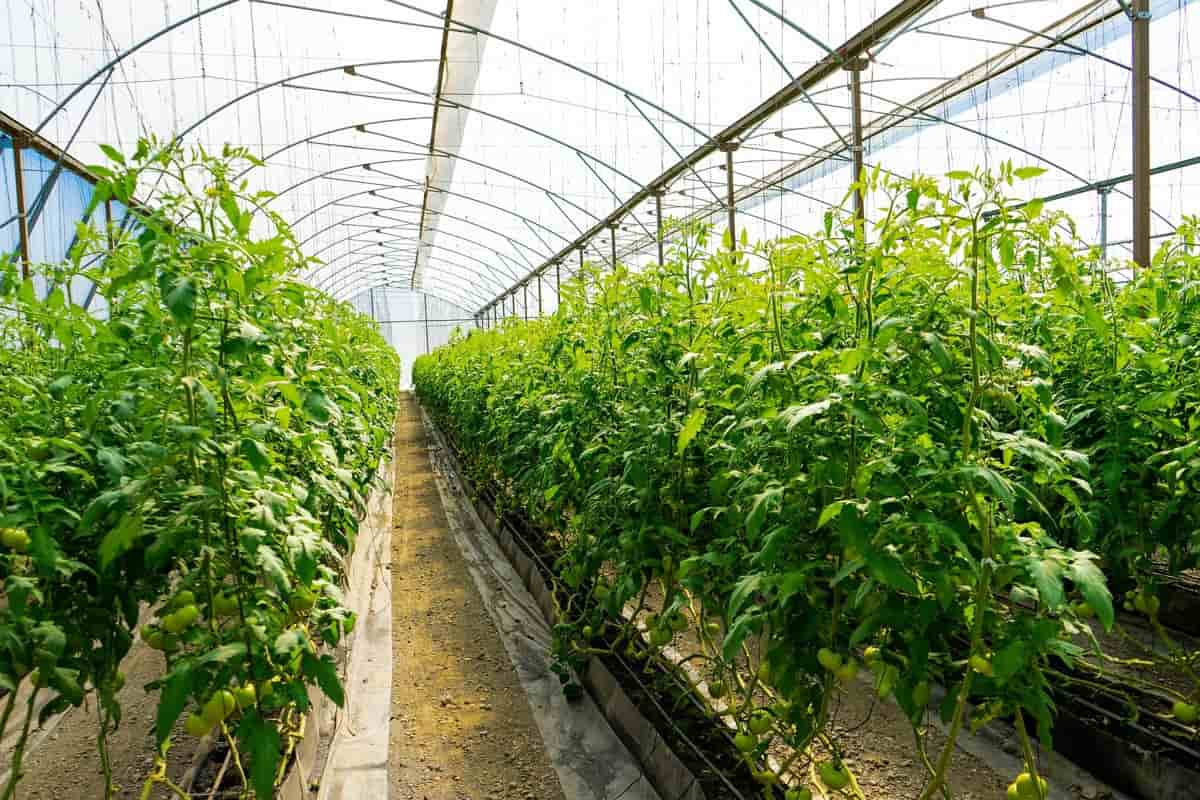
Cost to build a greenhouse in Israel
In Israel, greenhouse farming is becoming increasingly popular due to the country’s Mediterranean climate. A greenhouse typically costs around $60,000 to build, but this cost can change depending on the size and specifications of the structure. In addition, necessary permits and licenses may also cost money.
Key rules to start greenhouse farming in Israel
- Install shade nets: The first and most important priority is to install shade nets over your greenhouse to protect the plants from direct sunlight. Shade netting can be made from various materials, including cloth, plastic, or metal sheets.
- Get permission from the municipality: To operate a greenhouse in Israel legally, you will need permission from the municipality. You will also need to submit an application and pay a fee.
- Follow local regulations: In addition to following Israeli law, you will also need to follow local regulations regarding greenhouse farming in your area. These may include restrictions on how large your greenhouse can be, what kind of plants can be grown inside it, and how much noise the greenhouse can make.
- Use recycled materials: Use recycled materials in your greenhouse garden layout and construction. This will help reduce environmental impact and help save money on supplies costs.
Greenhouse subsidy in Israel
Greenhouse farming in Israel is a popular option for growing to produce year-round. In recent years, greenhouse farming has been gaining popularity worldwide. Not only is it more environmentally friendly and sustainable, but greenhouse farming is also becoming increasingly profitable. The Israeli government provides a subsidy of 50% to greenhouse farmers.
The program is in place to encourage the development of greenhouses as an environmentally friendly agricultural production system. The program has positively affected the growth of greenhouse farming in Israel. As a result, greenhouse farming is becoming more popular in Israel because it is an environmentally sustainable way to produce food.
In case you missed it: State Wise Tomato Farming Seasons in India: Growing Best Varieties and Production Yield
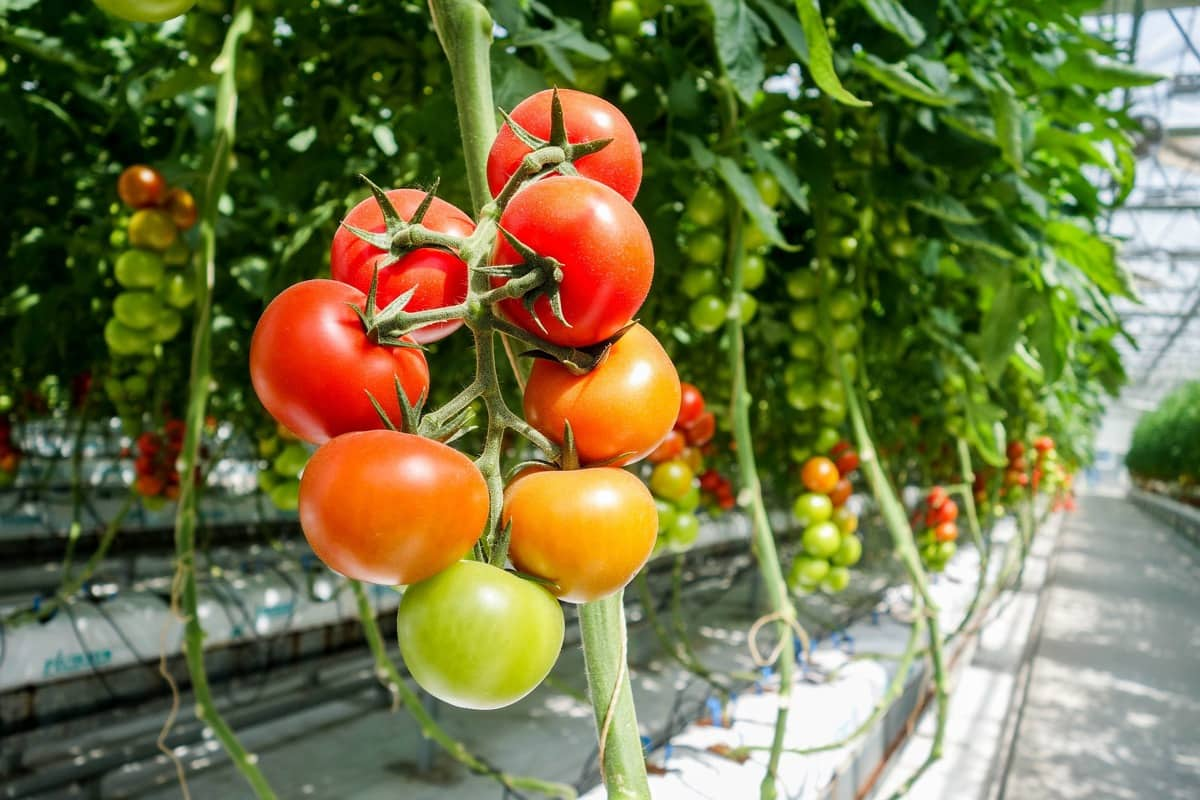
Challenges of greenhouse farming in Israel
- The difficulties of greenhouse farming in Israel include the arid climate, lack of sunshine, and high rainfall. The country also has a relatively low average elevation, which makes it difficult to build greenhouses at a reasonable height. Furthermore, the land is often rocky or hilly, making planting and harvesting crops difficult.
- One major challenge is weather variability: extreme weather events can damage crops in a greenhouse environment, even if the plants are properly protected. Another challenge is pests and diseases: these organisms can damage crops in a greenhouse even if they cannot survive outside the environment.
- Finally, greenhouses require good soil conditions to function optimally; Israeli soils are not always ideal for this type of cultivation.
- Another challenge facing greenhouse farmers in Israel is dealing with pests and diseases. Because Israel’s climate is dry, insects and diseases cannot flourish, which can be a major problem for growers. Fortunately, many pesticides and herbicides are effective against these pests when used correctly, so growers need only apply them according to label instructions. Despite these challenges, Israeli greenhouse farmers can produce a wide variety of vegetables and fruits using environmentally friendly methods.
Conclusion
Greenhouse farming is a good option for agriculture because it allows growers to control the temperature and humidity inside the structure, which results in better crops. Greenhouse farmers can also grow crops year-round because there is no need for frost protection. As a result, greenhouse farming has transformed Israel into one of the world’s leading producers of agricultural products.
- How to Build a Low-budget Goat Shed: Cheap Ideas and Tips
- Goat Farming Training Programs in India: A Beginner’s Guide
- Types of Pesticides Used in Agriculture: A Beginner’s Guide
- Economical Aquaculture: A Guide to Low-Budget Fish Farming
- 15 Common Planting Errors That Can Doom Your Fruit Trees
- How to Make Houseplants Bushy: Effective Tips and Ideas
- Innovative Strategies for Boosting Coconut Pollination and Yield
- Pollination Strategies for Maximum Pumpkin Yield
- The Complete Guide to Chicken Fattening: Strategies for Maximum Growth
- Natural Solutions for Tulip Problems: 100% Effective Remedies for Leaf and Bulb-Related Issues
- Revolutionizing Citrus Preservation: Towards a Healthier, Greener Future
- Natural Solutions for Peony Leaf and Flower Problems: 100% Effective Remedies
- Maximizing Profits with Avocado Contract Farming in India: A Comprehensive Guide
- Natural Solutions for Hydrangea Problems: 100% Effective Remedies for Leaf and Flowers
- The Ultimate Guide to Choosing the Perfect Foliage Friend: Bringing Life Indoors
- From Sunlight to Sustainability: 15 Ways to Use Solar Technology in Agriculture
- The Ultimate Guide to Dong Tao Chicken: Exploring from History to Raising
- The Eco-Friendly Makeover: How to Convert Your Unused Swimming Pool into a Fish Pond
- Mastering the Art of Delaware Chicken Farming: Essentials for Healthy Backyard Flocks
- 20 Best Homemade Fertilizers for Money Plant: DIY Recipes and Application Methods
- How to Craft a Comprehensive Free-Range Chicken Farming Business Plan
- Brighten Your Flock: Raising Easter Egger Chickens for Beauty and Bounty
- How to Optimize Your Poultry Egg Farm Business Plan with These Strategies
- Subsidy for Spirulina Cultivation: How Indian Government Schemes Encouraging Spirulina Farmers
- Ultimate Guide to Raising Dominique Chickens: Breeding, Feeding, Egg-Production, and Care
- Mastering the Art of Raising Jersey Giant Chickens: Care, Feeding, and More
- Ultimate Guide to Raising Legbar Chickens: Breeding, Farming Practices, Diet, Egg-Production
- How to Raise Welsummer Chickens: A Comprehensive Guide for Beginners
- How to Protect Indoor Plants in Winter: A Comprehensive Guide
- Ultimate Guide to Grow Bag Gardening: Tips, Tricks, and Planting Ideas for Urban Gardeners
- Guide to Lotus Cultivation: How to Propagate, Plant, Grow, Care, Cost, and Profit
- Agriculture Drone Subsidy Scheme: Government Kisan Subsidy, License, and How to Apply Online
- Ultimate Guide to Raising Araucana Chickens: Breed Profile, Farming Economics, Diet, and Care
- Bringing Hydroponics to Classroom: Importance, Benefits of Learning for School Students
- Ultimate Guide to Raising Polish Chickens: Breed Profile, Farming Economics, Diet, and Care
- Ultimate Guide to Raising Australorp Chickens: Profile, Farming Economics, Egg Production, Diet, and Care
I am interest in starting small farming project for my community.Thus, provide me step by step process to do the agri farming project.